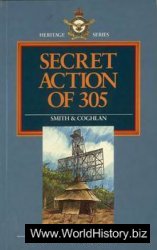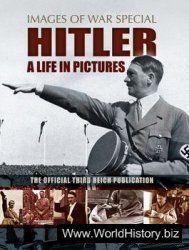The first major expedition launched by Henry's school took place from 1418 to 1420, and resulted in the establishment of Portugal's first overseas colony at Porto Santo on the Madeira (mah-DEER-uh) Islands to the northwest of the Canaries. Ships also began sailing south to explore the coast of Guinea, and as each expedition returned, Henry's cartographers (kar-TAHG-ruh-furz), or mapmakers, developed new maps incorporating the knowledge added by the returning explorers.
Cheng Ho

Like Henry the Navigator, Admiral Cheng Ho (jung-HOH; c. 1371-c. 1433) is a memorable figure in the history of exploration, but unlike Henry, Cheng actually led the voyages for which he is famous. Over the course of more than a quarter-century, he commanded a Chinese fleet that sailed to Southeast Asia, India, Persia, Arabia, and even Africa.
The son of Muslims in southern China, Cheng was born Ma Sanpao (MAH sahn-POW), and when he was twelve years old, he went to serve in the court of Prince Yan, the future emperor Yung-lo of China's Ming dynasty. When Yung-lo took power, he gave Ma Sanpao the new family name of Cheng, a sign of honor. At some point, Cheng was castrated and
Made a eunuch (YOO-nuk). When and why this happened is not known, though Chinese emperors often relied on eunuchs because they believed they could trust them around their many wives and concubines.
Initially the emperor put Cheng Ho to work building palaces in his capital city, but in 1405 he commissioned him as an admiral, a high-ranking naval officer equivalent to a general in the army. Yung-lo sent him on his first voyage, which lasted two years and involved some 27,000 men on more than sixty ships. They traveled to ports in Southeast Asia, as well as the islands of what is now western Indonesia, before reaching Ceylon and finally Calicut, in southern India.
Despite the fact that Henry's expeditions had the potential to add greatly to Portugal's wealth, he had many critics. Furthermore, he invested a great deal of his own money in the voyages, and for nearly fifteen years, his captains made little progress in finding a sea route to Guinea.
In September 1433, Henry's father died, and this forced him to turn his attention to family matters. His brother Edward I took the throne, but his reign was short and troubled, ending in his death in 1438. The new king, Afonso V, was Henry's nephew—but he was only five years old, and Henry had to assist in ruling the country as regent.
Later other counselors took over Henry's duties in the capital, and he was able to return to his primary interests. In 1437, he and his brother Ferdinand launched a campaign to
Though their purpose was peaceful, and they brought with them gifts for the princes they met, Yung-lo also intended for his fleet to demonstrate Chinese power in other lands. In any case, Cheng often became involved in conflicts, as on the first voyage, when a pirate attacked his fleet and killed some five thousand of his men. Cheng captured the pirate and brought him back in chains to China, where he was executed.
On a later voyage, the king of Ceylon (now Sri Lanka) tried to double-cross Cheng and attacked his ships while the Chinese were away in the Ceylonese capital. Learning of this, Cheng reasoned that the king had dispatched all his troops to the harbor and thus had left the city undefended, so he attacked the city. Victorious,
He brought the king of Ceylon back to China, where he was treated with kindness, but was replaced with a ruler more favorable to Chinese interests.
Later voyages took Cheng and his fleet to Persia and Arabia, and even—on the fourth expedition (1413-15)—to Africa. The fleet returned from this voyage bringing with them a giraffe, which they presented to the emperor's court. After Yung-lo died in 1424, Cheng's future was uncertain, but finally in 1430, he and his fleet were allowed to embark on a sev-enth—and, as it turned out, last—voyage. They went as far as Hormuz in Persia, but Cheng himself died in Calicut. With him died a golden age of Chinese exploration, never to be repeated.
Take the city of Tangier (tan-JEER) in Morocco. This turned out to be a massive failure, with the Moors capturing Ferdinand, who died in prison five years later.




 World History
World History









